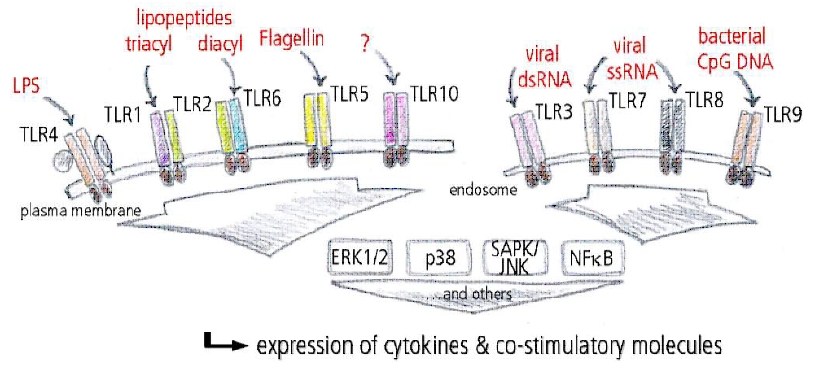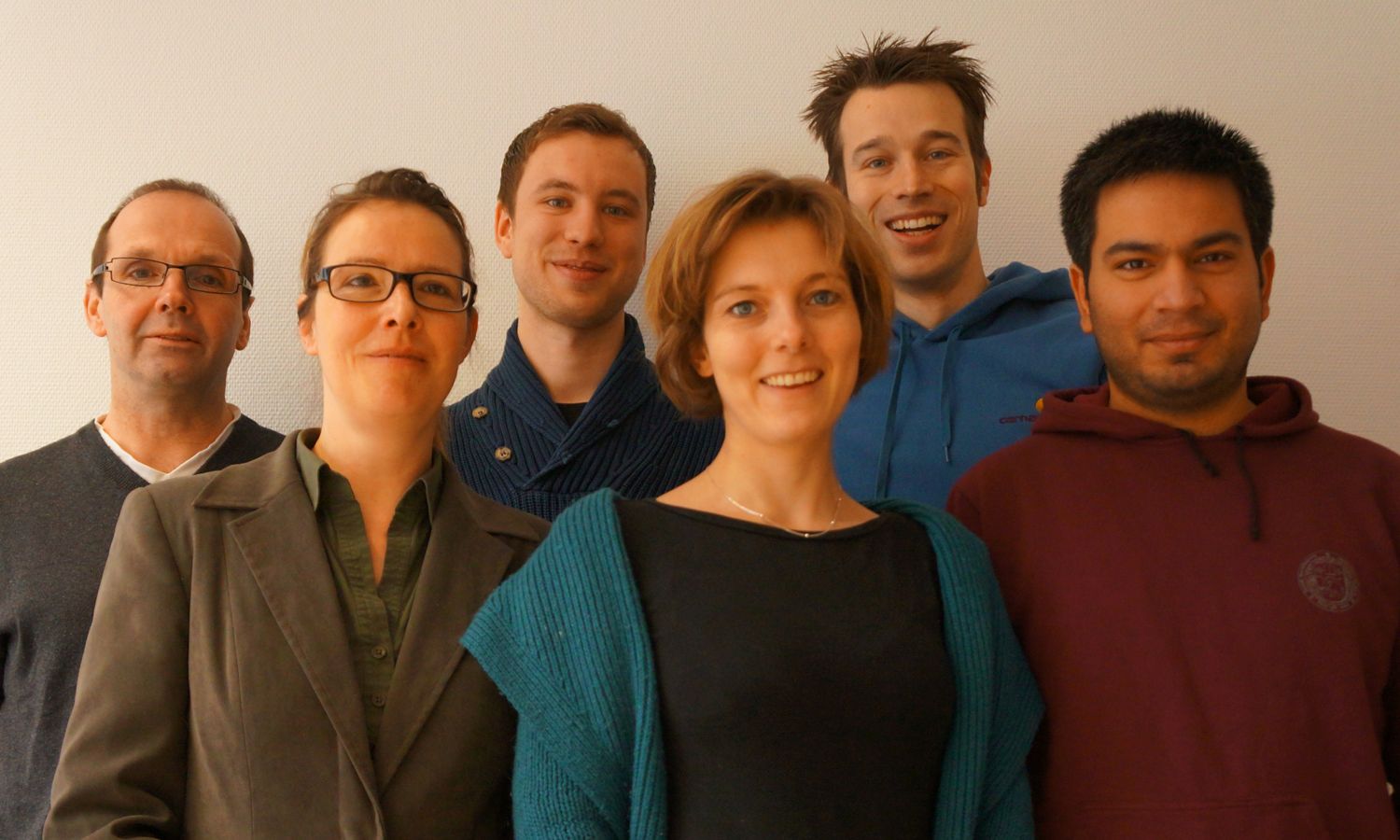Our current projects
Animal models (ApoE-/ -, LDL-R-/ -) have
been established where hypercholesterolemia is a
major cause of atherosclerosis. In special mouse
models, we study SOCS
proteins as negative regulators of inflammatory
processes and the immunologically important
chemokine receptor CCR7 and Toll-like receptors
(TLRs) as important receptors of innate immunity.
In addition, we develop a
humanized mouse model in which the cells of the
innate and acquired immunity are of human origin.
Extensive patient studies coupled with
genetic risk assessment will become of great
importance for our applied clinical research.
Selected publications
Luchtefeld
M, Grothusen C, Gagalick A, Jagavelu K,
Schuett H, Tietge UJ, Pabst O, Grote K,
Drexler H, Förster R, Schieffer B.
Chemokine receptor 7 knockout attenuates
atherosclerotic plaque development.
Circulation. 2010;122:1621-8.
Schieffer
B, Luchtefeld M. Importance of CCR7 for
migration of immune cells in
atherosclerosis and vascular
remodeling.
Emerging role of chemokine
receptor 7 in
atherosclerosis. Trends
Cardiovasc Med. 2011;21:211-6.
Jagielska
J, Kapopara PR, Salguero G, Scherr M,
Schütt H, Grote K, Schieffer B, Bavendiek
U. Interleukin-1 assembles a proangiogenic
signaling module consisting of caveolin-1,
tumor necrosis factor receptor-associated
factor 6, p38-mitogen-activated protein
kinase (MAPK), and MAPK-activated protein
kinase 2 in endothelial cells.
Arterioscler Thromb Vasc Biol.
2012;32:1280-8.
Schuett
H, Oestreich R, Waetzig GH, Annema W,
Luchtefeld M, Hillmer A, Bavendiek U, von
Felden J, Divchev D, Kempf T, Wollert KC,
Seegert D, Rose-John S, Tietge UJ,
Schieffer B, Grote K. Transsignaling of
interleukin-6 crucially contributes to
atherosclerosis in mice. Arterioscler
Thromb Vasc Biol. 2012;32:281-90.
Grothusen
C, Schuett H, Hillmer A, Lumpe S,
Grote K, Ballmaier M, Bleich A,
Glage S, Tietge UJ, Luchtefeld M,
Schieffer B. Role of suppressor of
cytokine signaling-1 in murine
atherosclerosis.PLoS One.
2012;7:e51608. doi:
10.1371/journal.pone.0051608.
Grote
K, Sonnenschein K, Kapopara PR, Hillmer A, Grothusen
C, Salguero G, Kotlarz D, Schuett H, Bavendiek U,
Schieffer B. Toll-Like Receptor 2/6 Agonist
Macrophage-Activating Lipopeptide-2 Promotes
Reendothelialization and Inhibits Neointima Formation
After Vascular Injury. Arterioscler
Thromb Vasc Biol. 2013;33:2097-2104.
Lukasz
A, Beutel G, Kümpers P, Denecke A, Westhoff-Bleck M,
Schieffer B, Bauersachs J, Kielstein JT, Tutarel O.
Angiopoietin-2 in adults with congenital heart disease
and heart failure. PLoS One. 2013 Jun 24;8(6):e66861.
doi: 10.1371/journal.pone.0066861. Print 2013.
Rupp TP, Rupp KG, Alter P, Rupp H. Replacement of Reduced Highly Unsaturated Fatty Acids (HUFA Deficiency) in
Dilative Heart Failure: Dosage of EPA/DHA and Variability of Adverse Peroxides
and Aldehydes in Dietary Supplement Fish Oils. Cardiology. 2013;125:223-31.
|
- Development
of a humanized mouse model for studies on the
interaction of human cells of adaptive immunity
in atherosclerosis and the use of specific human
therapies.
- In vitro modulation of the immune
repertoire by atherogenic substances and
identification of atherosclerosis-specific
clonal expansion of certain T cell receptors by
spectratyping.
- Role
of suppressor of cytokine signaling (SOCS) -1 in
early atherogenesis and its influence on the
activation of pro-inflammatory monocytes.
-
Studies on the interaction of dendritic cells
and naive T cells in an atherosclerotic mouse
model.
- Investigations on the
role of NOD-like receptors in atherosclerosis
and vascular remodeling.
- Visualization
of the development and progression of
atherosclerotic plaques as well as the migration
and interaction of immune cells in atherogenesis
using 7 T MRI.
-
Importance of CCR7 for migration of immune cells
in atherosclerosis and vascular remodeling.
- In view of the JELIS
trial and the pioneering studies of Calder et al. on
plaque stabilization by EPA, it will be
examined whether deficiency of highly
unsaturated fatty acids (HUFA) involving also
EPA+DHA during progression of dilative heart
failure is associated with destabilization of
plaques and an increased risk of infarction.
- Using stable isotope (C13) precursor
labeling, it will be assessed (mass
spectrometry) in
macrophage-like cell lines RAW
246.7 and J774.1
to what extent the synthesis of omega-3 over
omega-6 HUFA can be increased. Increased
omega-3 HUFA are expected to alter the phenotype of macrophages possibly towards the anti-inflammatory
phenotype, thereby contributing to
plaque stabilization.
|


